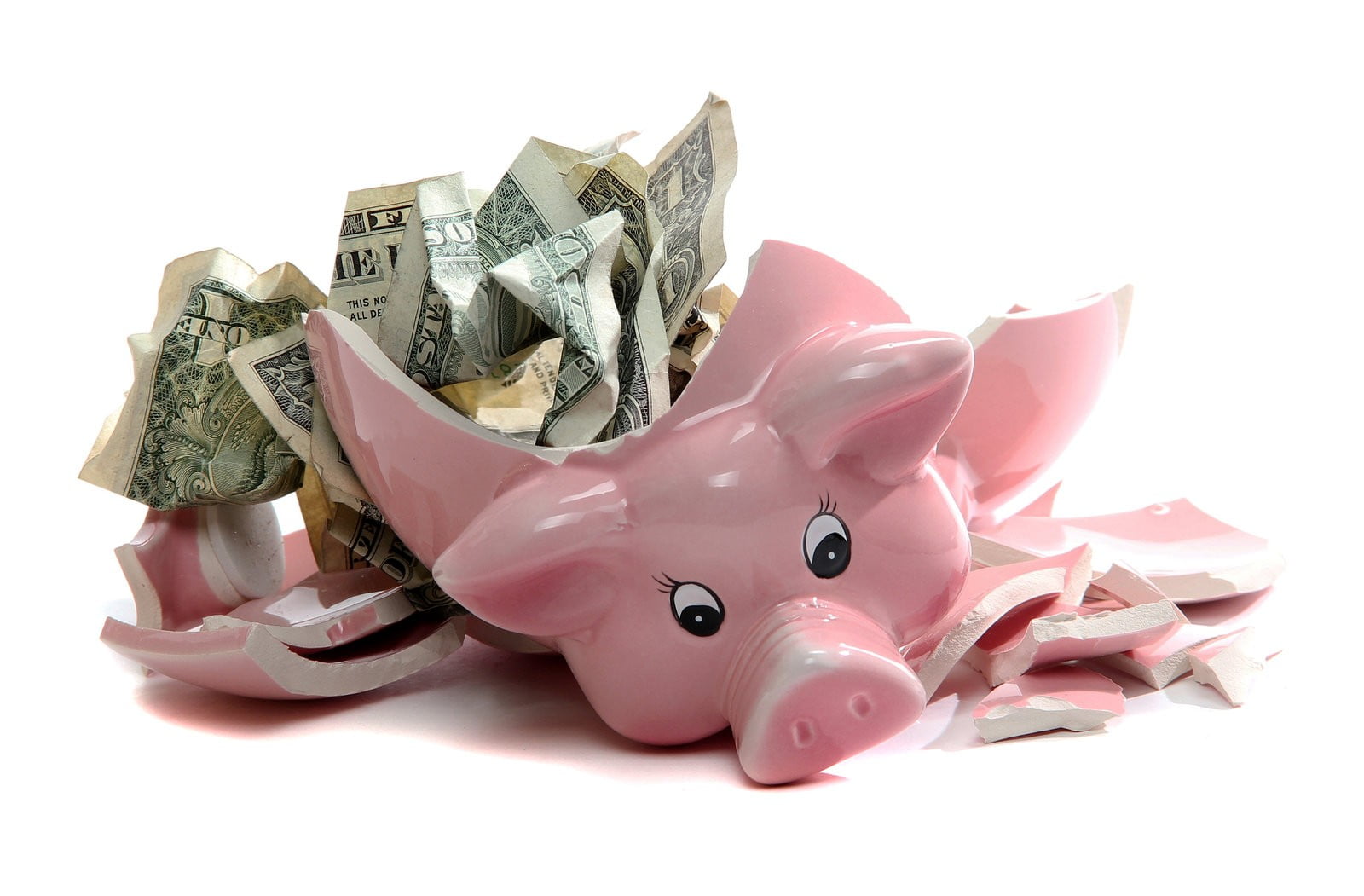Nearly one in four (22%) U.S. adults say they have no emergency savings, according to one Bankrate survey. With the survey also finding that 57% of U.S. adults are uncomfortable with the emergency savings they currently have, there’s no question that building up a healthy amount in savings can come in handy for both peace of mind and unexpected expenses. From the costs associated with unforeseen events to the value an emergency fund can hold, here’s how to start saving — even if you’re already on a tight budget.
The cost of encountering the unexpected
From surprise vet visits to rent increases, home maintenance, and more, there is no shortage of unexpected costs in life. Even a minor fender bender can have unanticipated financial consequences in the form of car repairs and medical bills — not to mention the fact that some injuries can involve a lengthy recovery time (such as a broken bone, back injury, etc.). Injuries sustained in common types of car accidents, such as hit-and-run accidents involving pedestrians, truck accidents, and those involving mass transit, can also result in serious medical issues. Regarding pedestrian injuries, for example, pedestrians struck by drivers disproportionately suffer from traumatic brain injury, knee fracture, and spine dislocation, according to a study by researchers at the University of California Irvine. Such injuries have the potential to lead to long-term disability — not to mention the fact that legal fees are another cost to consider for those who wish to take legal action.
Injuries, whether they’re a result of a road accident or something else entirely, can also bring to light the importance of having an emergency fund because they can happen anywhere at any time. Whether you’re dealing with a laceration that needs stitches, a broken bone, or even an unexpected illness, the costs involved can be a major stressor for those who don’t have an emergency fund. When it comes to the average price of a moderate-severity ER visit (the most common kind of visit), it’s imperative to realize that the cost can vary greatly depending on where you’re located. For instance, while a moderate-severity ER visit in Maryland costs an average of $623 (before insurance), moderate-severity ER patients in Florida are billed an average of $3,102 before insurance. With that in mind, having a healthy emergency fund can be a great way to gain peace of mind in knowing you’re prepared for an unexpected injury or illness.
Emergency fund = peace of mind
Unexpected expenses come up from time to time, whether it’s a mere $20 home maintenance fix or thousands in medical bills. Regarding the reasoning behind why so many lack an emergency fund, Bankrate explains that when comparing different economic factors, 68% of people are saving less due to inflation or rising prices, up from 49% in January 2022. Other elements, such as rising interest rates and changes in income/employment, are additional reasons many save less. Due to the nature of unexpected expenses, however, having a healthy emergency fund can give you peace of mind in knowing that you’re prepared and can allow you to focus on what’s going on rather than worrying about finances.
Getting started (even when on a budget)
Putting back a significant amount of money can be a daunting concept in 2023, especially considering that some 70% of Americans admit to being stressed about their personal finances these days. Furthermore, a majority (52%) of U.S. adults said that their financial stress has increased since before the COVID-19 pandemic began in March of 2020, according to one CNBC Your Money Financial Confidence Survey conducted in partnership with Momentive. Thankfully, however, there are several ways in which one can build an emergency fund — even when on a strict budget. Adjusting your budget, automating your finances, and shopping smart deals are just a few key ways to save money.
When it comes to how much to save, one Forbes post offers sound advice. “It’s best to start with small, achievable goals. Saving $500 or $1,000 is a good thing to aim for at first.” When aiming to build up savings fast, the post goes on to recommend tracking your spending and designing a personalized budget, noting that understanding your earnings and outflows of cash will help in setting you up for long-term financial success. “By closely tracking your spending, you might learn things that surprise you,” notes the post. With that in mind, cutting out unnecessary expenses — such as a morning coffee run, subscriptions to services that you don’t use much, and frivolous spending — can be an easy place to get started.
Unexpected costs are never fun, though having an emergency fund can bring peace of mind knowing that the financial aspect is already taken care of. By tracking your spending and adjusting your budget, building up a healthy savings can be made simpler, thus allowing you to prepare effectively.






